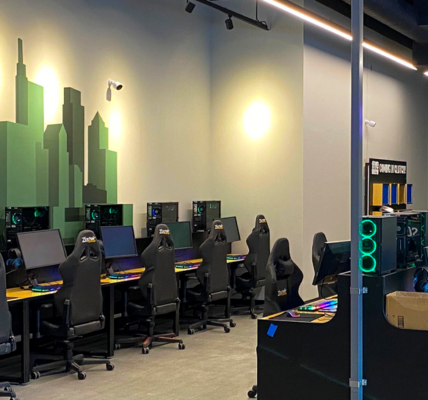Virtual Reality (VR) technology has ushered in a new era for the gaming industry, offering players immersive experiences that go beyond traditional screen-based interactions. As VR continues to evolve, it introduces a paradigm shift in the way we perceive and engage with digital games, creating an environment where players can step into the virtual world. Let’s explore the impact of Virtual Reality technology in gaming.

Immersive Gameplay:
One of the key contributions of VR to gaming is its ability to provide players with a truly immersive experience. Through head-mounted displays and motion controllers, gamers can interact with the virtual environment in three dimensions, making movements and actions within the game feel more natural. This heightened level of immersion enhances the overall gaming experience, creating a sense of presence and making players feel like they are part of the game world.
New Genres and Experiences:
Virtual Reality technology has paved the way for the development of entirely new gaming genres and experiences. VR horror games, for instance, can induce a heightened sense of fear and suspense as players feel like they are physically present in eerie environments. VR simulations provide opportunities for realistic flight experiences, underwater adventures, and even virtual tourism, expanding the gaming landscape beyond traditional genres.
Innovative Gaming Mechanics:
VR introduces innovative gaming mechanics that leverage the technology’s unique features. Players can use hand gestures and body movements to control characters or manipulate objects within the game. This level of interactivity not only adds a new layer of complexity to gameplay but also challenges players to master virtual environments in ways that were not possible with traditional gaming interfaces.
Future Prospects:
The future of Virtual Reality in gaming holds exciting possibilities. As technology advances, VR hardware is becoming more affordable and user-friendly. Game developers are continuously pushing the boundaries of creativity, exploring new ways to leverage VR for storytelling, education, and collaborative gaming experiences. The integration of artificial intelligence, haptic feedback, and other immersive technologies further promises to enhance the realism and impact of VR gaming.
Conclusion
In conclusion, Virtual Reality technology has transformed gaming into a more immersive and interactive experience. From realistic environments to innovative gameplay mechanics, VR has opened up new dimensions for gamers to explore. As the technology continues to progress, the gaming industry is poised for a future where the boundaries between the real and virtual worlds become increasingly blurred, providing gamers with unprecedented levels of immersion and engagement.




